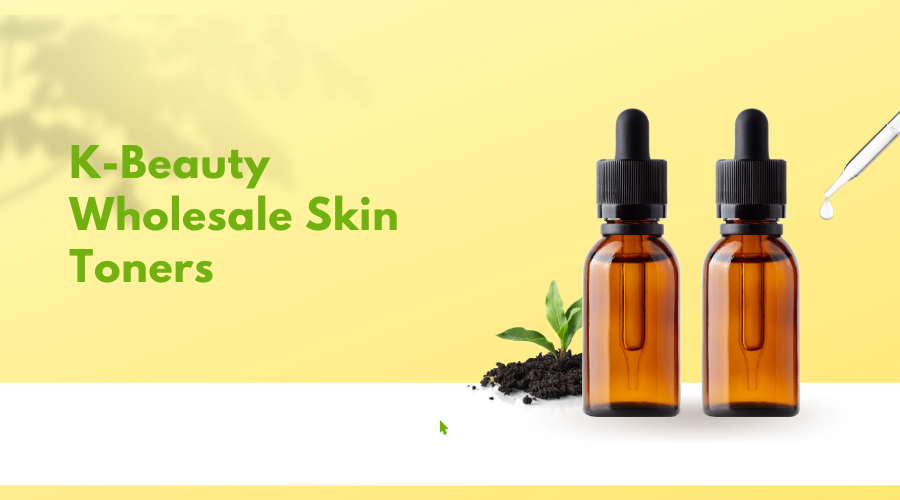Facial Scrub vs. Face Wash: What’s the Difference & Which One Do You Need?
- healthybeautykr
- Apr 30
- 4 min read
Updated: Jun 4

With so many products promising clearer, brighter, and healthier skin, it’s easy to mix things up. Two of the most commonly confused items are the facial scrub and the face wash. While they might seem interchangeable, they actually serve different purposes and deliver different results.
So, what’s the difference between a facial scrub and a face wash? And more importantly, which one should you use in your daily skincare routine?
In this guide, we’re breaking it all down in plain English—no fluff, no jargon, just facts and tips that actually help your skin.
1. What Is a Face Wash?
A face wash is a gentle cleanser designed to remove:
Dirt
Oil
Sweat
Impurities from the skin’s surface
Think of it as your everyday go-to. Whether you’re getting ready in the morning or washing off the day’s grime, a face wash keeps your skin clean without being too harsh.
Most face washes come in gel, cream, or foam forms and are formulated to match different skin types like oily, dry, sensitive, or combination.
2. What Is a Facial Scrub?
A facial scrub, on the other hand, is an exfoliant. Its job? To remove dead skin cells that build up on the surface of your skin.
It typically contains tiny granules or chemical exfoliants that help “scrub” away rough patches, dullness, and clogged pores. When used correctly, a wholesale face scrub can leave your skin looking smoother, brighter, and more refreshed.
But here’s the catch—you shouldn’t use it daily. Over-scrubbing can lead to irritation, redness, or even micro-tears in your skin.
3. Key Differences at a Glance
Let’s clear things up with a quick side-by-side comparison:
4. When Should You Use a Face Wash?
Every single day. Twice if possible. A face wash is your skin’s best friend in maintaining cleanliness and preventing breakouts caused by sweat, dirt, or oil buildup.
You should always wash your face:
After waking up
After workouts
Before bed
A proper face wash helps prep your skin to absorb moisturizers, serums, or treatments that follow.
5. When Should You Use a Facial Scrub?
A facial scrub steps in when your skin starts to feel rough, looks dull, or your pores seem clogged.
The ideal time to scrub is:
Once or twice a week
At night, so your skin has time to rest and repair
After cleansing, but before applying other skincare products
Pro tip: Always follow up with a hydrating moisturizer to soothe the skin after scrubbing.
6. Why You Shouldn’t Use a Facial Scrub Every Day
It’s tempting, we know. The baby-soft feeling after exfoliating is addictive. But overdoing it can cause:
Dryness
Irritation
Redness
Skin barrier damage
Scrubbing too often strips away natural oils and weakens your skin’s ability to protect itself. Less is more when it comes to exfoliation.
7. Which One Is Right for Your Skin Type?
Here’s a quick guide:
Oily Skin:
Face Wash: Go for gel-based or foaming cleansers with salicylic acid.
Facial Scrub: Use once or twice weekly to clear excess oil and unclog pores.
Dry Skin:
Face Wash: Choose cream-based or hydrating formulas.
Facial Scrub: Use a gentle exfoliant with moisturizing ingredients like jojoba beads or oatmeal.
Sensitive Skin:
Face Wash: Stick to fragrance-free, hypoallergenic cleansers.
Facial Scrub: Avoid physical exfoliants; use mild chemical exfoliants like lactic acid (and test patch first!).
Combination Skin:
Use a mild cleanser daily and a balancing scrub once a week to manage both oily and dry areas.
8. Can You Use Both?
Absolutely! In fact, using both is ideal for a complete skincare routine.
Here’s how:
Start with your daily face wash to cleanse.
Then, once or twice a week, use a facial scrub after your face wash to exfoliate and deep clean.
Just make sure your products are compatible and not overly harsh when used together.
9. Best Ingredients to Look For
When shopping for these products, keep an eye out for skin-friendly ingredients:
For Face Wash:
Salicylic acid (for acne-prone skin)
Hyaluronic acid (for hydration)
Niacinamide (for calming redness)
Tea tree oil (for oily skin)
For Facial Scrub:
Jojoba beads (gentle exfoliation)
Rice powder (natural scrub)
Fruit enzymes (like papaya or pineapple)
Lactic or glycolic acid (chemical exfoliants)
Avoid microbeads or harsh shell powders that can scratch your skin!
10. Common Myths About Face Washes and Scrubs
Let’s bust a few myths:
Myth: “Scrubs cure acne.”
→ Reality: They help with clogged pores but don’t treat acne directly.
Myth: “The more I scrub, the better.”
→ Reality: Over-exfoliation causes damage, not glow.
Myth: “Face wash doesn’t matter much.”
→ Reality: Using the right face wash sets the foundation for everything else in your skincare.
Conclusion: Which One Do You Need?
You don’t have to choose between a facial scrub and a face wash—you just need to know when and how to use them.
Face wash is your daily cleanser that keeps things clean and balanced.
Facial scrub is your once-in-a-while treatment to brighten and smoothen.



Comments